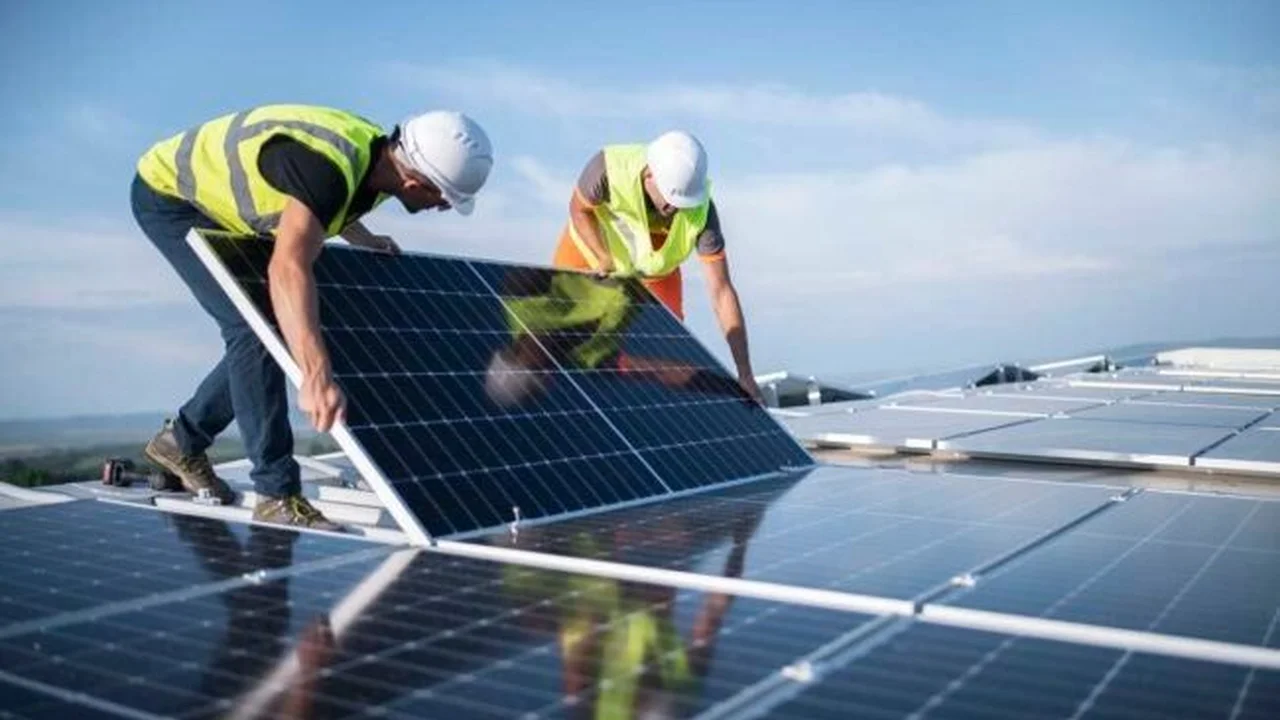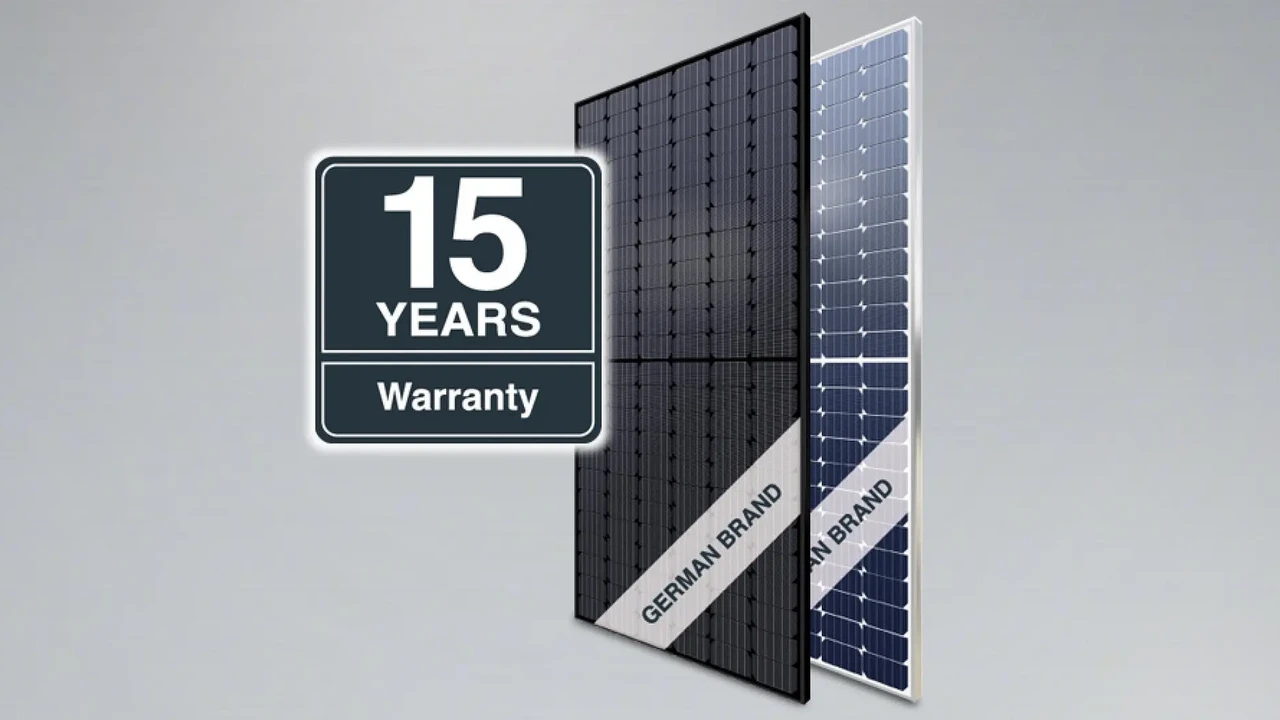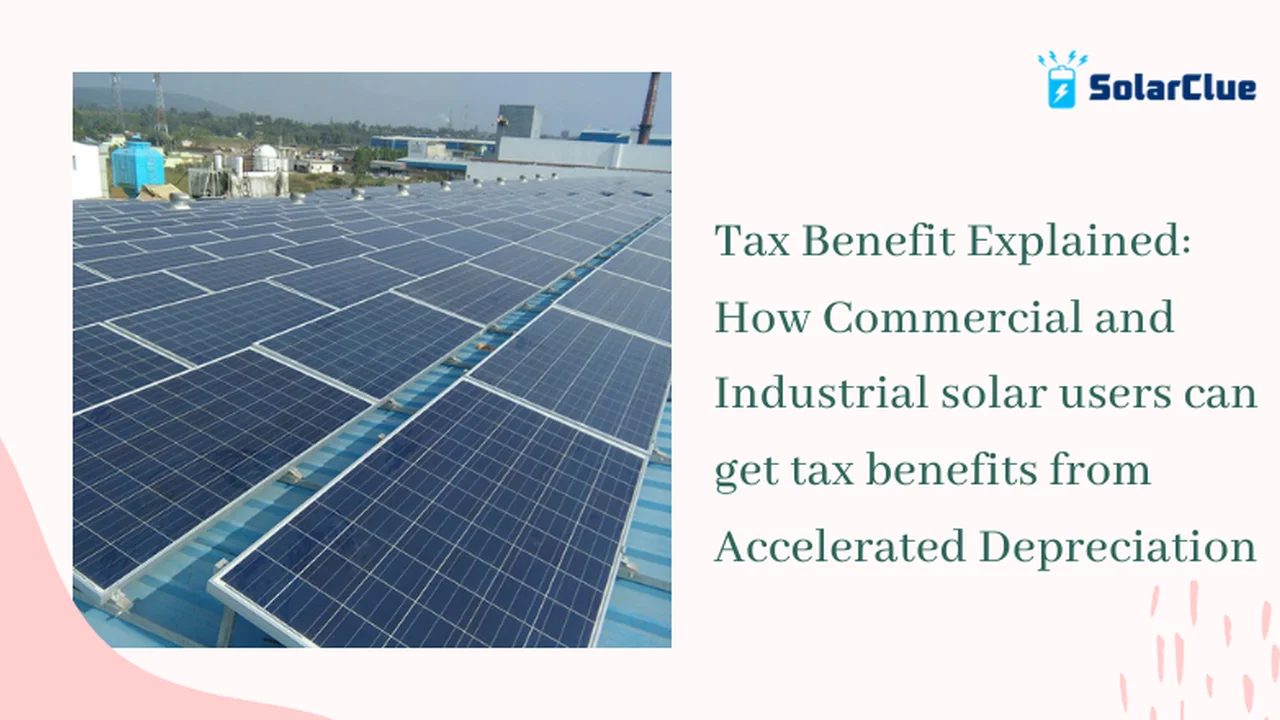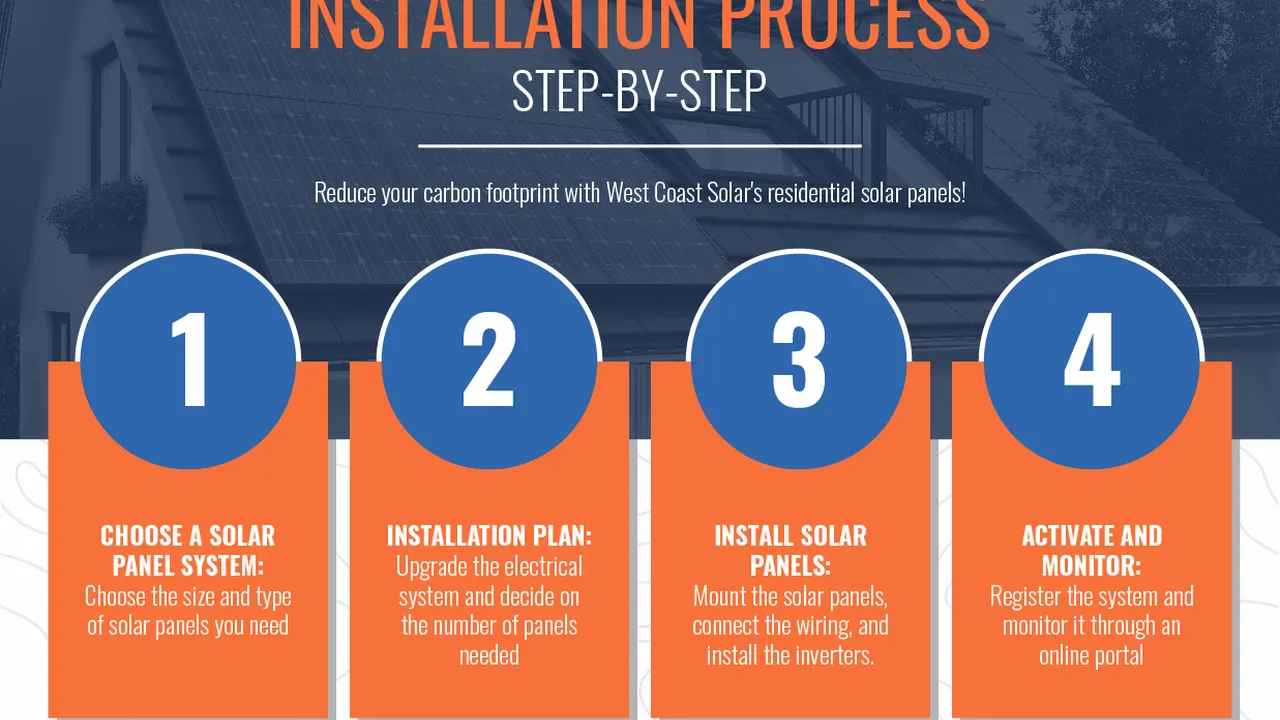Solar Panel and Home Insurance: What You Need to Know
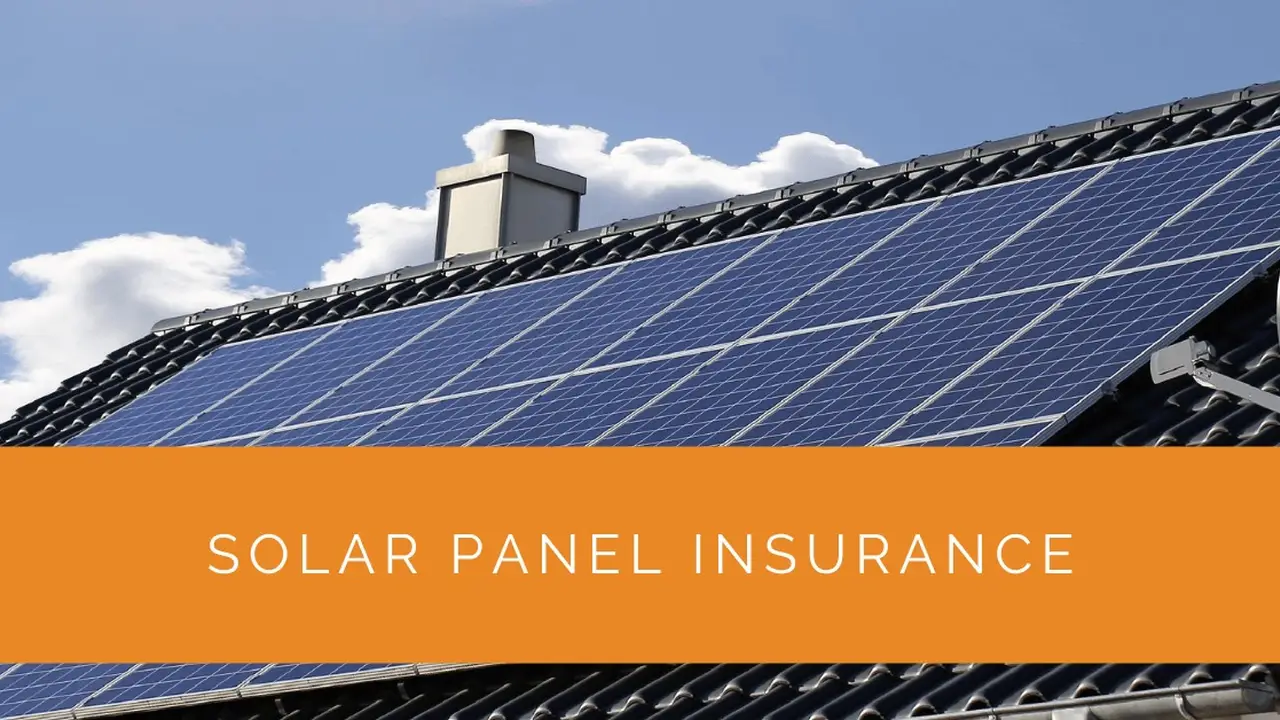
Understanding Solar Panel Insurance Requirements and Homeowner Policies
So, you've gone solar! Awesome! You're saving money, helping the planet, and generally being a rockstar. But have you thought about how your shiny new solar panels affect your home insurance? A lot of homeowners don't, and that can be a costly mistake. Let's break down what you need to know about solar panels and your homeowner's insurance policy.
First things first: Your homeowner's insurance is designed to protect your property against damage from things like fire, wind, hail, theft, and vandalism. Since solar panels are now a part of your property, they need to be covered. Think of them like an extension of your roof, or a fancy, energy-generating skylight. Most standard homeowner's policies will cover solar panels, but it's crucial to confirm this with your insurance provider. Don't just assume! Give them a call.
Why is this important? Well, imagine a hailstorm rolls through and pummels your roof, cracking some of your solar panels. Without proper coverage, you're stuck footing the bill for repairs or replacements, which can be substantial. We're talking thousands of dollars, potentially.
Solar Panel Coverage and Home Insurance Policy Types Explained
Now, let's dive into the nitty-gritty of coverage. There are a couple of main ways your solar panels can be covered under your homeowner's policy:
- Included in your dwelling coverage: This is the most common scenario. Your solar panels are considered part of your home's structure and are covered under your dwelling coverage limit. This means that if your roof is insured for $300,000, that coverage extends to your solar panels as well.
- Scheduled personal property: In some cases, especially with more expensive or custom solar panel systems, your insurance company might require you to specifically schedule your solar panels as personal property. This means listing them individually on your policy with their value. This offers more precise coverage and can be beneficial if you have a particularly valuable system.
Which type of coverage you have will depend on your insurance company and the specifics of your policy. Read your policy documents carefully, and again, don't hesitate to call your insurer to clarify. Understanding the details can save you headaches later.
Increased Home Insurance Premiums After Solar Panel Installation Considerations
Okay, here's the part nobody wants to hear: installing solar panels might increase your homeowner's insurance premiums. Why? Because you've increased the value of your home and the potential cost of a claim. Think of it like adding a swimming pool – it's a great addition, but it also increases your liability and the potential for damage.
The increase in premiums will vary depending on several factors, including:
- The cost of your solar panel system: More expensive systems will generally lead to higher premiums.
- Your location: Areas prone to severe weather (hail, hurricanes, etc.) might see larger premium increases.
- Your insurance company: Different insurers have different ways of calculating premiums.
Before you install solar panels, get quotes from your insurance company to see how your premiums will be affected. This will help you factor the cost of insurance into your overall solar investment. It's all about being informed!
Finding the Best Home Insurance for Solar Panels: Shopping Around and Comparing Quotes
Don't just stick with your current insurance company out of habit! Shopping around for the best home insurance for solar panels is crucial. Get quotes from multiple insurers and compare their coverage options, premiums, and deductibles. Here are some things to look for:
- Comprehensive coverage for solar panels: Make sure the policy explicitly covers damage to solar panels from various causes (hail, wind, fire, theft, etc.).
- Replacement cost coverage: This is important! You want a policy that will pay to replace your solar panels with new ones, not just the depreciated value of your old ones.
- Liability coverage: This protects you if someone is injured on your property due to your solar panels (e.g., a repair person falls off the roof).
- A deductible you're comfortable with: A lower deductible means higher premiums, and vice versa. Choose a deductible that you can afford to pay out of pocket in case of a claim.
Websites like Policygenius, NerdWallet, and The Zebra are great resources for comparing home insurance quotes online. You can also work with an independent insurance agent who can shop around for you and find the best coverage at the best price.
Solar Panel System Maintenance and Insurance Claim Prevention Tips
Preventing damage to your solar panels is always better than filing an insurance claim. Here are some tips to keep your system in good shape and minimize the risk of damage:
- Regular inspections: Inspect your solar panels regularly for any signs of damage, such as cracks, loose connections, or debris buildup.
- Professional cleaning: Dirt and debris can reduce the efficiency of your solar panels. Have them professionally cleaned at least once a year.
- Tree trimming: Keep trees trimmed back to prevent branches from falling on your solar panels during storms.
- Snow removal (if applicable): Heavy snow loads can damage your solar panels. Remove snow carefully using a soft brush or broom.
- Monitor your system's performance: Most solar panel systems come with monitoring software that allows you to track their performance. If you notice a sudden drop in production, it could indicate a problem.
By taking these preventative measures, you can reduce the likelihood of needing to file an insurance claim and keep your solar panel system running smoothly for years to come.
Specific Solar Panel Products and Insurance Considerations: Reviews and Comparisons
Let's talk about some specific solar panel products and how they might impact your insurance needs. Different panels have different warranties, durability, and price points, all of which can influence your insurance decisions.
LG Solar Panels: Premium Performance and High Value Coverage
LG solar panels are known for their high efficiency and durability. They often come with a longer warranty than other brands. This might slightly influence your insurance premium. A longer warranty can sometimes reduce the perceived risk by the insurance company, but this is not always the case. They generally fall into a higher price bracket. Expect to pay between $3.00 - $4.00 per watt installed. These are generally used in home settings and are suitable for homeowners looking for a premium product.
REC Group Solar Panels: Reliable and Cost-Effective Insurance
REC Group panels offer a good balance of performance and affordability. They're a solid choice for homeowners who want a reliable system without breaking the bank. REC panels are typically priced between $2.50 - $3.50 per watt installed. These are suitable for both residential and commercial applications. They are great for large-scale projects due to their cost-effectiveness.
SunPower Solar Panels: Maximum Efficiency and Insurance Implications
SunPower panels are renowned for their industry-leading efficiency and sleek design. However, they also come with a premium price tag (around $3.50 - $4.50 per watt installed). Because of their higher cost, insuring SunPower panels might result in slightly higher premiums. Their high efficiency makes them ideal for homes with limited roof space. They are also very aesthetically pleasing, which can be a factor for some homeowners.
Comparing Solar Panel Products and Insurance Considerations
When comparing different solar panel products, consider not only their performance and price but also their warranty and potential impact on your insurance premiums. Talk to your insurance agent about the specific panels you're considering and get quotes based on each option. It's also important to note that the installation company's insurance is also relevant. Make sure they have adequate liability and workers' compensation insurance to protect you in case of accidents during the installation process.
Solar Panel Inverter Insurance: Protecting Your System's Brain
Don't forget about your solar panel inverter! The inverter is the brain of your solar panel system, converting the DC electricity generated by the panels into AC electricity that can be used by your home. Inverters are also susceptible to damage from power surges, lightning strikes, and other electrical issues. Make sure your homeowner's insurance policy covers your solar panel inverter as well. Some policies might require you to specifically schedule the inverter as personal property, especially if it's a high-end model.
Brands like Enphase and SolarEdge are popular inverter choices. Enphase microinverters are installed on each individual solar panel, which can provide more granular monitoring and potentially reduce the risk of a system-wide failure. SolarEdge inverters use a central inverter along with power optimizers on each panel, which can also improve performance and monitoring. The cost of inverters can range from $1,000 to $3,000 depending on the size and type of system.
Solar Panel Battery Storage and Home Insurance Coverage
If you're considering adding battery storage to your solar panel system, you'll need to factor in the insurance implications as well. Batteries can provide backup power during outages and help you store excess solar energy for later use. However, they also represent an additional investment that needs to be protected. Check with your insurance company to see how battery storage is covered under your policy. Some policies might require a separate rider or endorsement to cover batteries.
Tesla Powerwall, LG Chem RESU, and Sonnen batteries are popular choices for home energy storage. The cost of battery storage systems can range from $10,000 to $20,000 or more, depending on the size and capacity of the battery. These batteries are typically installed indoors, which can reduce their exposure to the elements but also increase the risk of fire. Make sure your insurance policy covers fire damage related to battery storage.
Navigating Solar Panel Insurance Claims: What to Do When Damage Occurs
Okay, so let's say the worst happens, and your solar panels are damaged. What do you do? Here's a step-by-step guide to navigating a solar panel insurance claim:
- Document the damage: Take photos and videos of the damaged solar panels and any other related damage to your property.
- Contact your insurance company: Report the damage to your insurance company as soon as possible.
- Get a repair estimate: Obtain a written estimate from a qualified solar panel installer for the cost of repairs or replacement.
- File a claim: Fill out the necessary paperwork and submit it to your insurance company along with your documentation and repair estimate.
- Cooperate with the insurance adjuster: The insurance company will likely send an adjuster to inspect the damage and assess the claim. Cooperate with the adjuster and provide any information they request.
- Review the settlement offer: Once the insurance company has processed your claim, they will send you a settlement offer. Review the offer carefully to make sure it covers the full cost of repairs or replacement.
- Negotiate if necessary: If you're not satisfied with the settlement offer, you can negotiate with the insurance company. Be prepared to provide additional documentation or evidence to support your claim.
Remember to keep detailed records of all communication with your insurance company and any expenses you incur related to the claim.
Future Trends in Solar Panel Insurance: What to Expect
The solar panel industry is constantly evolving, and so is the insurance industry. Here are some trends to watch out for in the future:
- Increased adoption of solar panel insurance: As more homeowners install solar panels, the demand for solar panel insurance will continue to grow.
- More specialized solar panel insurance products: Insurance companies are likely to develop more specialized insurance products that are tailored to the specific needs of solar panel owners.
- Integration of solar panel monitoring data into insurance policies: Insurance companies might start using data from solar panel monitoring systems to assess risk and adjust premiums.
- Increased focus on preventative measures: Insurance companies might offer incentives to homeowners who take preventative measures to protect their solar panels, such as regular inspections and cleaning.
Staying informed about these trends will help you make the best decisions about your solar panel insurance coverage.
DIY Solar Panel Installation and Home Insurance Implications
While DIY solar panel installation might seem like a cost-saving option, it can have significant implications for your home insurance. Many insurance companies are hesitant to cover DIY solar panel installations due to concerns about safety and code compliance. If you install solar panels yourself, you might need to obtain a special inspection and certification to ensure that the installation meets all applicable codes and standards. Even with certification, some insurers may still charge higher premiums or deny coverage altogether. It's crucial to discuss your DIY plans with your insurance company before you start the installation process to understand the potential consequences.
Leased Solar Panels and Insurance Responsibility: Who Pays for What?
If you lease your solar panels instead of owning them outright, the insurance responsibility typically falls on the leasing company. However, it's essential to review the terms of your lease agreement carefully to understand your specific obligations. The lease agreement should clearly outline who is responsible for insuring the solar panels against damage and who is responsible for any liability related to the system. Even if the leasing company is responsible for insurance, you might still need to notify your homeowner's insurance company about the leased solar panels to ensure that your overall coverage is adequate. You may also be responsible for covering any damage to your home caused by the solar panels, such as roof leaks.
Selling a Home with Solar Panels: Insurance Transfer and Disclosure Requirements
When you sell a home with solar panels, you'll need to address the insurance implications as part of the transaction. If you own the solar panels, you'll need to transfer the insurance coverage to the new owner or cancel your policy and allow the new owner to obtain their own coverage. If you lease the solar panels, you'll need to transfer the lease agreement to the new owner, and the insurance responsibility will remain with the leasing company. In either case, it's essential to disclose the presence of solar panels to potential buyers and provide them with all relevant information about the system, including the insurance coverage and any warranties or guarantees.
:max_bytes(150000):strip_icc()/277019-baked-pork-chops-with-cream-of-mushroom-soup-DDMFS-beauty-4x3-BG-7505-5762b731cf30447d9cbbbbbf387beafa.jpg)



